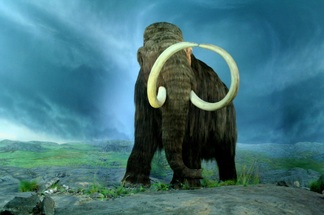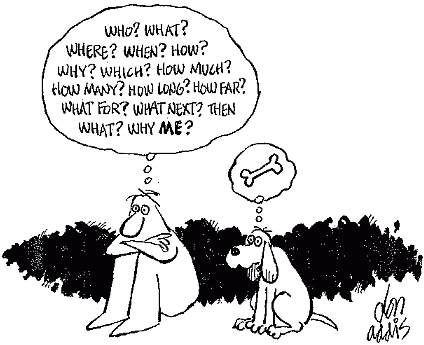|
The following is an article written by Juliette Foster. Enjoy!
Mindfulness as a Tool to Promote Mental Wellness Mindfulness is not a new principle, as it is integral to Buddhism, but there is increasing interest in its value as a therapy to enhance mental well-being. There is evidence that adopting this technique can help to manage conditions such as anxiety, depression associated with pregnancy and post-traumatic stress disorder. Mindful practices can also promote better memory, so have potential as a therapy in the early stages of dementia, and can improve learning and concentration, making it a valuable tool in education. Being more mindful can additionally foster healthy relationships, which itself can boost mental wellness. However, even with this range of benefits it is important to understand what mindfulness is and the mechanisms it works through. Understanding mindfulness When we are mindful it means we pay close attention to our thoughts, the way we feel and take in our surroundings. This involves concentrating on the moment without being distracted by former experiences or what is still to come. Another principle of mindfulness is that we don’t make any judgments, so we accept things as they are. However, we need to appreciate that we are responsible for our thoughts and activities, and that it is possible to change these for the better. Mindful mechanisms Mindfulness doesn't work through just one component; there are four that explain the way in which it works. Through attention regulation, which involves focusing on a physical object, this helps us avoid distractions. By concentrating on our breathing and other internal sensations, this promotes greater awareness of our bodies. Meanwhile, by accepting our emotions, this gives us more control over them. Finally, by changing the view of ourselves, we can acknowledge that it is possible to make changes which can have a positive impact on us. Avoiding its drawbacks No form of therapy is perfect, so mindfulness has its limitations. For example, if we become too aware of our body, this can heighten sensations, as is sometimes the case when it comes to feelings of pain. There is also a chance that when we use mindfulness when it is not called for that this can interfere with creativity, as our mind needs to wander to inspire creative thoughts. Similarly, abilities and skills not under conscious awareness are also more difficult to acquire when mindfulness is overused. The key to avoid these problems is therefore receiving instruction on when it is suitable to use mindful practices. Mandala photo courtesy of http://unityinmarin.org/
1 Comment
 Thousands of years ago, our ancestors had larger foreheads, less comfy living quarters and a whole different set of things to be worried about. The tingling sensation and heightened awareness that occurred when you were about to be mauled by a mammoth, could potentially be lifesaving. Having your nervous system on high alert or as it is sometimes known “fight or flight,” can provide many added benefits, if you are in a perilous situation. Your senses are heightened, adrenaline flows through your system, you become stronger, more alert, faster, all things which can help you to escape physical harm. In modern society, we are likely better served being worried about our email inbox as opposed to being some larger animal’s lunch. However, there are still remnants of our more primitive brain which exist today. Most of these are close to the brain stem and deal with our more base emotions, such as anger and anxiety. This is not to say that being worried about something does not still serve a purpose, it does. We can channel that energy to meet deadlines, improve our performance, and perform well in times of stress. In the way that most people’s brain works, after the time of heightened stress or imminent danger has passed, the brain returns to its normal state. However, if you suffer from anxiety, this is not always the case. The brain can continue to send out the signal that you are in danger, causing you to be constantly on edge. So, what causes this misfire in the brain? Why do some people feel as though they are constantly anxious about something, no matter how inconsequential it might seem? The culprit is a tiny almond-shaped area in the brain known as the amygdala. The amygdala is responsible for sending out an “alert” to the rest of your brain (and ultimately your entire body) that you are in danger. Recent neurological research has suggested that some people inherently have an over-active amygdala, almost like a twitchy trigger finger, that fires at inappropriate times. Another factor is what people themselves interpret as being a potentially dangerous situation, based on their personality. If you are an introverted person who prefers to spend time by themselves or with one or two close friends, the idea of a cocktail party might seem like the end of the world. Or, if you are afraid of spiders, seeing a harmless small spider might feel as though it is a threat to your well-being. The good news for people who suffer from anxiety is that there are several options to help alleviate your symptoms. Therapy has been shown to be very effective in helping to manage anxiety. The act of processing your anxieties and becoming more conscious of them can help to override your amygdala. Medication, when warranted, can also help. If you have any questions about anxiety, or know someone who is suffering from it, don’t hesitate to contact me. Don’t suffer needlessly! Unless you are being pursued by a wooly mammoth, in which case, feel free to be nervous. Otherwise, take the first steps towards living a more comfortable and relaxed life. Photo courtesy of wikimedia.org  “The mind acts like an enemy for those who don’t control it.” Bhagavad Gita "All his life has he looked away to the future, to the horizon. Never his mind on where he was. Hmmm? What he was doing. Hmph." Yoda In recent years, there has been an exciting convergence between Eastern Philosophy and Western Neuroscience. The practice of Mindfulness has been shown in several studies to help with many kinds of distress. Personally, I have seen a great benefit to people who make use of Mindfulness to reduce their suffering from anxiety. One of the wonderful things about Mindfulness is its simplicity. A conscious effort to maintain focus on the present moment is all that is required. Much of the distress that results from anxiety comes from allowing the mind to ruminate over things that are often times out of our control. Thinking about where we are going to be, what we are going to be doing, how we are going to be doing it, etc., all cause the mind to become centered on the future. Staying in the present moment allows you to be focused on things that you have more control over. How you are walking, what you are eating, if you are smiling at the person that just walked by you, are all examples of being mindful. We have a great deal more choice over what we choose to focus on than is immediately apparent. This is not to say that your brain will not become distracted or move rapidly from one idea to the next. It will. What is important is to recognize that your thoughts are elsewhere, gently take notice of it, and return your focus to the present moment. The word "exercise" is often used to describe Mindfulness activities This is an apt description. Neuroplasticity is a term that is used to describe your brain's ability to act like a muscle. Your brain is capable of forming new connections over time, literally re-wiring itself to more quickly access what areas are being focused on. So, if you focus on things like the present moment, or feeling empathy and compassion for other people, your brain will eventually begin to do this as more of a default than a conscious effort. These things do not happen overnight, obviously, but simply making the effort to be more aware of what you are doing in the present moment can very quickly divert your mind from more detrimental and anxiety-provoking thoughts. If you are having anxiety which is adversely affecting your life, I can help you to make use of some very simple ways to change your thinking. This change can help you to overcome bad habits, negative emotions, and keep you grounded in the present moment. If you have any questions around Mindfulness, Neuroplasticity, or anxiety, please feel free to contact me. Cartoon courtesy of Don Addis. Photo courtesy of http://marcdeveraux.blogspot.com/2012/11/yoga-and-brain.html. Yoda photo courtesy of Star Wars Wiki
|
AuthorStephen Quinlan is a Licensed Independent Clinical Social Worker who practices in Dover, NH Categories
All
|



 RSS Feed
RSS Feed